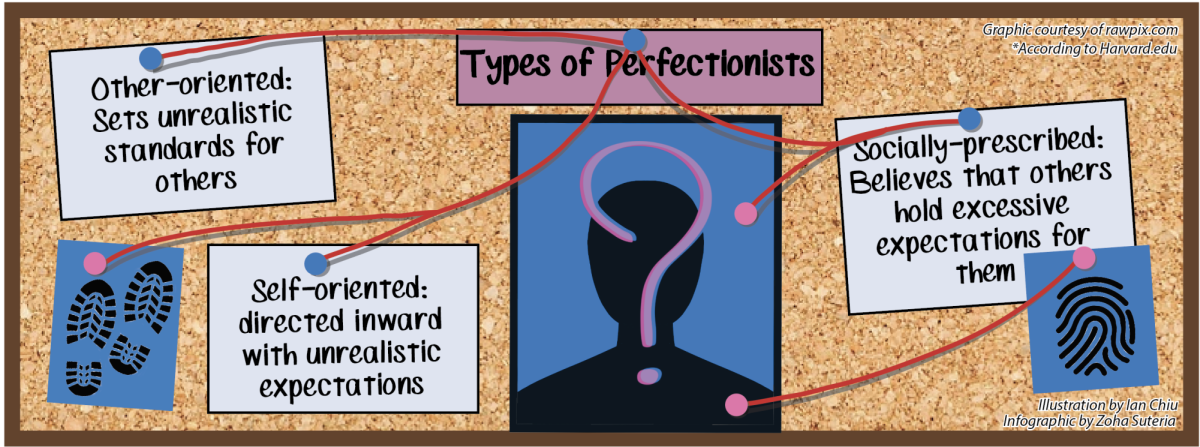I’ve rewritten this column more times than I’d like to admit.
Perfectionism has a way of drawing out indecision and hesitation, placing relentless pressure to polish, refine, and revisit every aspect of our lives—until ultimately, we abandon our efforts altogether, overwhelmed by the impossibility of making it flawless.
For me, perfectionism is not just about letting myself down, it’s about letting my family down. My parents are immigrants from a third-world country, and their sacrifices built the foundation of everything I have today. While they undoubtedly have high expectations for me, the true burden doesn’t come from their pressure; it comes from my own. They’ve worked tirelessly to give me opportunities they never had, and I don’t want to let them down.
South students may also feel the weight of similar expectations, amplified by an environment that rewards achievement above all else. As an Academy student, I’m surrounded by people who are just as driven and competitive. Here, the notion of simply being “good enough” has faded, replaced by the constant pressure to always be exceptional. The bar for success sits impossibly high, and the consequences of not reaching it feel devastating, especially when each of us is expected to juggle academics, extracurriculars, and social lives with unrelenting precision.
We’re expected to outperform, outshine, and somehow be the best at all times. Anything less is a failure.
This weight of perfectionism is crushing.
The fear of failure and disappointment is so heavy, so consuming, that it convinces us it’s better not to begin at all. So we procrastinate, caught in the endless cycle of wanting to succeed but fearing even to try. But here’s the thing; not trying, is in itself, a form of failure. How will we ever know if we could have been great if we never allow ourselves the chance to find out?
The reality is, we can’t avoid imperfection. Waiting until we’re certain we can be the best means waiting forever.
Perfectionism’s all-or-nothing mindset is unsustainable. It’s predicated on a flawed notion that greatness is a fixed, quantifiable state, a place where mistakes no longer exist. This idea ignores that real growth comes from our willingness to try, fail, adapt, and try again. It’s in the missteps and the learning where we find our true potential, not some polished, unreachable version of ourselves.
However, this doesn’t mean we should abandon our standards or let go of our ambition. There is a healthier form of perfectionism, one that values progress over perfection and allows us to hold ourselves to high standards without letting them define our worth.
True greatness isn’t about avoiding failure; it’s about having the courage to try, and accepting that imperfection is part of the process.
While there will always be opportunities to improve, that does not diminish the value of who we are today. Each step forward, however imperfect, is a step towards the person we are meant to become.








